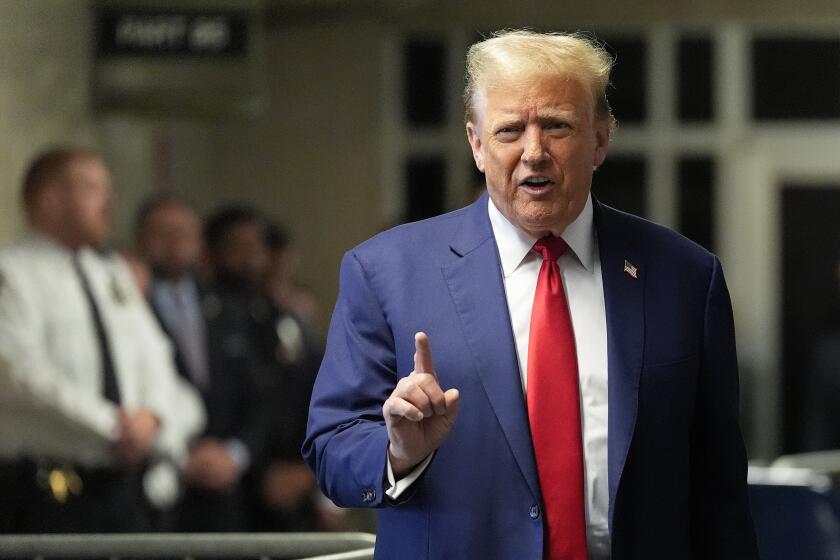The Daily Flip-Flop on Iraq
The Bush administration is not at risk of damaging its credibility in Iraq; it’s in danger of destroying it. The latest developments on U.S. troop deployments and still-undiscovered Iraqi weapons of mass destruction suggest that the administration either is in total disarray or it actively seeks to mislead the public.
For months, Secretary of Defense Donald H. Rumsfeld stoutly denied that more troops were needed in Iraq, even with U.S. soldiers being killed each day. In a trip to Iraq in early September, he brushed off the idea of more U.S. troop deployments and said of security woes: “It’s a problem that, ultimately, the Iraqi people will deal with, with the help of coalition troops.” Electric service was so good, he added, that at night Baghdad looked “like Chicago.” But power supplies across Iraq remain fitful.
Now that President Bush has failed to win a promise of new international forces, especially soldiers from India or Pakistan, Iraq continues to deteriorate. Indeed, Peter Pace, vice chairman of the Joint Chiefs of Staff, told the Senate on Wednesday that the U.S. may need to activate more National Guard and reserve forces if 15,000 to 20,000 foreign troops can’t be mustered soon. Making matters worse, Secretary-General Kofi Annan is pulling back more United Nations personnel from Iraq because of security concerns.
If the administration has been indifferent to the difficulties the regular military deployments have caused, much less the hardship of National Guard and reserve families, it’s been dumbfounding on Iraq’s deadly weapons. Bush officials have urged patience in uncovering them and looked to a forthcoming report from David Kay, head of the Iraq Survey Group and a former U.N. inspector. On Sept. 14, Secretary of State Colin L. Powell said, “Dr. Kay will be putting out a report in the very near future, and I look forward to seeing it, as everyone else does.” White House spokesman Scott McClellan said Kay had been “compiling massive amounts of documents about Iraq’s history of weapons of mass destruction....”
On Monday, however, national security advisor Condoleezza Rice abruptly stated, “I would not count on reports” from Kay. “I suppose there may be interim reports,” she said. “I don’t know when those will be, and I don’t know what the public nature of them will be.” Why the reversal? Kay reportedly hadn’t found incontrovertible evidence that the Iraqis had active banned-weapons programs. Still, this is no reason for the administration to suppress his work.
Though Bush officials’ Iraq pronouncements may shift as quickly as the weather, there’s no escaping that the president told Americans the U.S. had to go to war because Saddam Hussein had weapons of mass destruction and would use them, imminently. If those weapons don’t exist, the public deserves to see the report saying so. The shame wouldn’t be in dealing with this uncomfortable truth but in denying it and trying to cover it up. With the stakes so high and growing daily, Bush officials have no choice but to shift once more and offer what has been woefully lacking on Iraq: clarity and candor.
More to Read
Get the L.A. Times Politics newsletter
Deeply reported insights into legislation, politics and policy from Sacramento, Washington and beyond. In your inbox three times per week.
You may occasionally receive promotional content from the Los Angeles Times.






